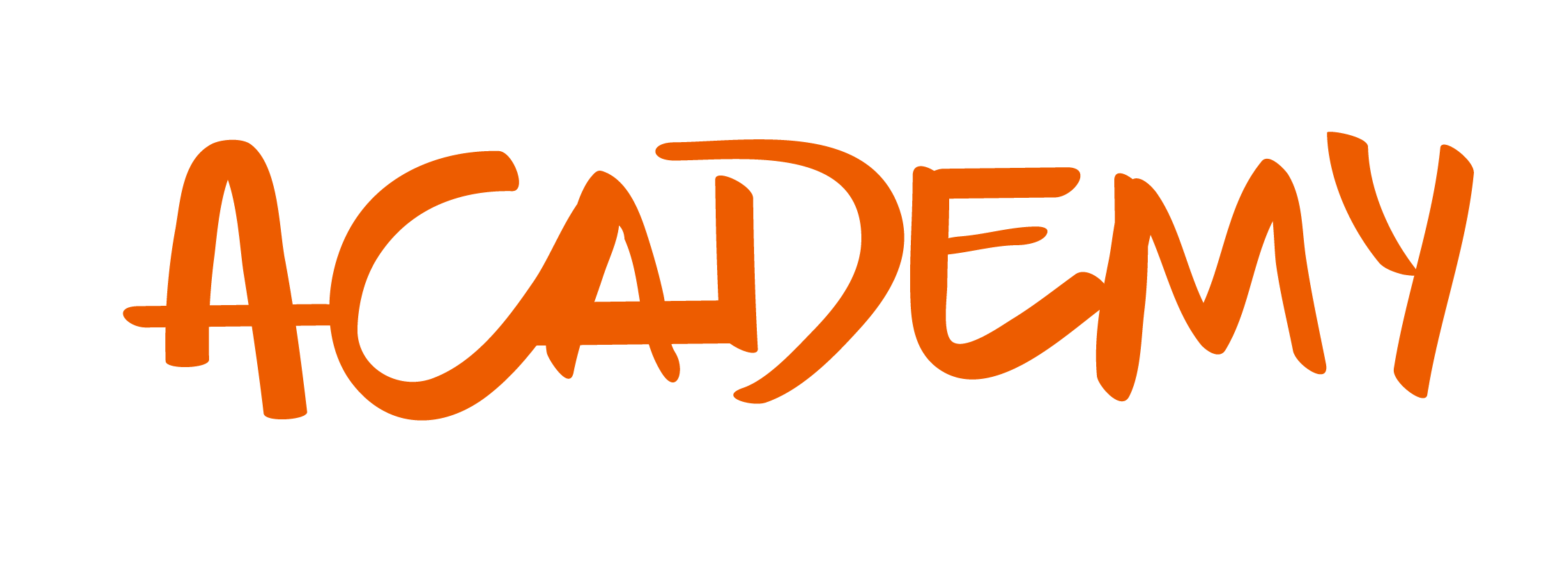Continual professional development is important in any career, but none more so than in the software development industry. With new technologies and programming languages constantly emerging, coders have a tough task in keeping themselves up-to-speed with the latest trends and methods in the world of programming.
With an increasing demand for their skills, becoming a software developer is a popular career choice and there are a wealth of books available on the subject. But with so many options out there, it can be hard knowing which books every programmer should read. In this post, we’ve compiled a definitive list of the top 10 books that every software developer should own.
But before we continue, you may be asking yourself: do programmers really need to read books? After all, it’s code, not words. So surely budding developers are better off coding away and practicing different languages, right?
To a certain extent, that’s true. Mastering different languages require lots of practice, not reading. And with a plethora of blog posts and video tutorials available online, it’s tempting to think that computer science books are a thing of the past. But the truth is they offer valuable lessons for software engineers: experience, expertise, and teachings from the most successful developers.
Programming books offer so much more than just explaining different languages. They teach you about the craft and the business: how to be a good programmer, manage clients and deliver successful projects. By reading books, coders learn different methods and tricks to solving complex problems that can help them save time in their day-to-day lives, as well as become more of an expert on the subject.
So, here’s COR’s list of books every programmer should read at least once.
1. The Pragmatic Programmer: From Journeyman to Master by Andrew Hunt and David Thomas
Why is it a must-read book for learning to code?
The Pragmatic Programmer is a timeless classic that any newbie or experienced programmer can read multiple times and learn something new with each reading. First being published over 20 years ago, the teachings in this book remain relevant today despite advances in technology. This is one of the best books for learning to code as it focuses not just on the technical side of things, but also on the business and career side of computer programming. The authors are experienced programmers and use anecdotes and personal experiences to help explain their concepts.
What topics does it cover?
These are just some of the topics covered in The Pragmatic Programmer:
- Career growth and development as a software developer
- How to write code that codes itself
- How to automate your processes
- Testing and debugging
- The best tools to use
- How to take an idea and build it in code
- How to avoid duplicate knowledge
- How to build coding teams.
2. Clean Code: A Handbook of Agile Software Craftsmanship by Robert C Martin (aka Uncle Bob)
Why is it a must-read book for learning to code?
Clean Code makes our pick of the top 10 books to learn programming thanks to the way effortlessly explains how to write good code. Programming legend Uncle Bob leans on his decades of experience to teach perfect software craftsmanship. He writes about a variety of different techniques he’s learned over the years and how you can apply them to your coding.
The book is split into three main parts: principles and theories, case studies and learnings, and “smells” from the case studies. (A bad small means bad or flawed coding)
While this book focuses mainly on Java, the principles and ideas can easily be applied to other programming languages. This is Uncle Bob’s first book on coding and although written in 2009, the content largely remains relevant today.
What topics does it cover?
These are just some of the topics covered in Clean Code:
- How to write clean Java
- How to write clearer code
- Agile methodologies
- How to name variables
- The best way to format codes
- How to turn bad code into good code
- How to spot bad smells
3. Head First Design Patterns: A Brain-Friendly Guide: Building Extensible and Maintainable Object-Oriented Software by Eric Freeman and Elisabeth Robman
Why is it a must-read book for learning to code?
Head First Design Patterns is essential reading if you’re learning to program. Its visually rich content makes it one of the best books to learn how to code: it’s full of diagrams, images, and illustrations that help you memorize different designs in less time. It’s also a fantastic way for programmers to learn from others’ experiences and choose patterns that have been tried and tested.
What makes this classic book different from others is how it explains the reasoning behind different designs, and not just how to implement them. While it doesn’t cover all possible designs, it explains the most useful patterns for problem-solving – something that can be applied to other areas of programming. The latest edition is updated for Java 8.
What topics does it cover?
Here are just some of the points you’ll learn in Head First Design Patterns:
- How to solve software design problems
- How to create flexible and reusable software
- Object-orientated design principles
- How to design elegant code
4. The Clean Coder: A Code of Conduct for Professional Programmers by Robert C. Martin (Uncle Bob)
Why is it a must-read book for learning to code?
Uncle Bob’s The Clean Coder is the follow-up to his earlier Clean Code and is a great book for all those wanting to be better programmers. This makes our pick of the best coding books as it focuses on the business of coding and the soft skills necessary to succeed in the industry. In this book, you’ll learn how to quote for projects, estimate the time needed and manage tight deadlines.
Uncle Bob uses his wealth of experience to teach the values all software developers should maintain, as well as rules and codes of conduct to follow. It also explains the best ways to manage your time and clients, and how to avoid burnout. This book is perfect for those who want to level up their careers.
What topics does it cover?
These are some of the things you’ll learn in The Clean Coder:
- Refactoring and testing
- How to be a professional programmer
- What bad coding means for time management
- How to deal with difficult clients
- How to learn new skills and grow
5. The Mythical Man-Month: Essays on Software Engineering by Frederick Brooks Jr.
Why is it a must-read book for learning to code?
The Mythical Man-Month is a top 10 book for learning to code for the way it tackles the issue of effective project management. Originally published in the 90s, Brooks’ book has been one of the most important and influential publications on the subject of software development. He uses his experiences to teach readers that large and complex programming projects are often affected by poor management. He also explains why it’s essential to maintain the integrity of the product throughout the design process.
The author introduced the concept of Brook’s Law in The Mythical Man-Month, a project management theory. He claims that adding manpower to an already delayed project won’t speed it up, and even risks slowing it down.
What topics does it cover?
- How to fix errors without creating more
- How to manage a software development project
- How labor should be organized
- The most common mistakes
- How to avoid these mistakes
6. Code Complete: A Practical Handbook of Software Construction by Steve McConnell
Why is it a must-read book for learning to code?
Steve McConnell’s Code Complete is widely considered one of the most in-depth and detailed books on software development. And at a meaty 960 pages, you can believe it. In this book, Steve McConnell talks about programming from both an artistic and scientific point of view, exploring the whys, and not just the hows, behind coding methodologies. Full of real-world examples, the book provides readers with a practical guide to different programming languages.
For budding programmers, and experienced developers, this book is a must-read for the wealth of information it contains. Although lengthy, readers can dip in and out of its pages as challenges arise in their day to day.
What topics does it cover?
- Simple design concepts for maximum creative output
- How to refactor code
- How to solve common problems
- Producing quality code
- How to create a collaborative coding environment
- Perfect coding craftsmanship
7. Working Effectively with Legacy Code by Michael Feathers
Why is it a must-read book for learning to code?
This book is essential reading for programmers as it skillfully tackles one of the biggest challenges in software development: legacy code. For those newer developers who may not be aware of what legacy code is, here’s an explanation:
Legacy code is coding produced by other developers, using different methodologies, technologies, or programming languages that are no longer supported, or used on the current project.
Despite the rapid technological and scientific advances of the past few decades, legacy code continues to be huge a challenge for big companies. In his book, Michael Feathers uses his years of coding experience to explain different techniques for refactoring old code without having to start from scratch. This book helps programmers work more efficiently with legacy code and contains a wealth of practical strategies. The book is based on Java, C++, and Csharp programming languages.
What topics does it cover?
Working Effectively with Legacy Code covers the following topics, and more:
- How to identify what legacy code to modify
- The process of refactoring code
- Strategies for working with untested code
- The theories behind software change
- How to test new code
8. Introduction to Algorithms by Thomas H Cormen
Why is it a must-read book for learning to code?
This is a good book for those wanting to understand more about one of the most trending topics in computer science: algorithms. Suitable for all different experience levels, Thomas Cormen’s Introduction to Algorithms is regarded as the most complete book on the subject matter. It covers a vast range of different algorithms, with simple explanations in pseudocode that make it easy to understand for all. Even though the author uses elementary-level examples to help the reader grasp the concepts, the book still manages to cover more complex mathematical reasoning behind algorithms.
Introduction to Algorithms is full of exercises for readers to practice and is one of the most used textbooks in computer science studies.
What topics does it cover?
- Web trees
- Edge-based flow
- Dynamic programming
- Multithreaded algorithms
- Divide-and-Conquer (also known as recurrence)
- Probabilistic analysis
- Data structures
9. Refactoring: Improving the Design of Existing Code by Martin Fowler
Why is it a must-read book for learning to code?
In this classic book, Martin Fowler skillfully guides the reader through the complex issue of refactoring. It helps developers understand the topic in greater depth, covering what refactoring is, why it’s important and how to implement it. Readers will learn how to make their coder easier to read, test, and maintain, as well as identify when refactoring a codebase may be necessary.
Clear and concise, the book contains a wealth of step-by-step, real-world examples that programmers can follow to practice their refactoring skills. In each of his examples, the author describes the logic behind each one so readers can apply it to other problems that need solving. The book mainly uses Javascript examples, but the ideas and theories can easily be applied to other programming languages.
What topics does it cover?
- How to identify “bad smells” in coding
- The correct structure for your code
- Correct testing for refactoring
- Quick application
- The best tools to use
10. Design Patterns: Elements of Reusable Object-oriented Software by John Vlissides, Erich Gamma, Richard Helm, and Ralph Johnson.
Why is it a must-read book for learning to code?
Design Pattern’s comprehensiveness is the reason why it makes it into our top 10 books for learning to code. No less than 4 authors contributed to this publication, sharing their expertise and wealth of experience to help others master the concept of design patterns. The book starts with an in-depth explanation of what they are and how they can be applied to object-orientated software.
It then goes on to describe some of the most common design problems and different methodologies to solving them. The solutions proposed by the authors may not always be the most obvious, which gives the reader a different perspective on problem-solving. The teachings in this book can be applied to different programming languages, and help programmers maximize their time by using tried and tested theories. Developers can re-use the design patterns in this book and apply them to a wide range of problems, saving them the need to re-learn design concepts. It mainly uses Smalltalk and C++ programming languages.
What topics does it cover?
- Adapting interfaces of one object to use on another
- How to produce more elegant and flexible software
- How to design object-orientated software
Conclusion
Our list of the top 10 books every programmer should read covers a variety of different subjects within the world of coding. From design patterns to clean coding, these books help budding software developers master their trade and become better programmers. They also help coders understand the craftsmanship behind good coding, as well as the business of software development and how to deliver successful projects. Reading books is essential for coders who want to grow professionally and take their careers to the next level.















